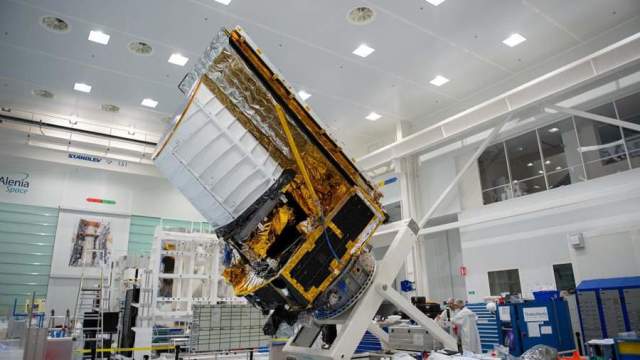The sOyuz rocket will send the Euclid telescope to search for dark matter at the end of 2022. This was announced on September 29 by the European Space Agency (ESA).
"The ESA Euclid mission has reached a new milestone in its development: the telescope and instruments have been successfully tested, showing that it can work and achieve the required characteristics in extreme space conditions. Euclid will study dark energy and dark matter," the report says.
Euclid will be launched from the European Kourou Cosmodrome in French Guiana at the end of 2022.
The contract for the launch of Euclid by the sOyuz ST rocket from Kuru was signed between ESA and Arianespace in January 2020. Then the launch was scheduled for mid-2022, the European Ariane 6 was proposed as a backup rocket.
As noted, Euclid will display billions of galaxies with unprecedented accuracy at a distance of up to 10 billion light-years from Earth. The shooting will cover more than a third of the night sky. The measurements will allow us to better understand the history of the expansion of the Universe and the rate of growth of cosmic structures.
The telescope is designed for six years of operation. It will look for traces of the existence of dark matter and dark energy, which, as the researchers note, is responsible for the rapid expansion of the universe.
Earlier, on August 6, the Russian-German space telescope "Spektr-RG" confirmed the cosmological model of the origin of the Universe as a result of the Big Bang. One of the discoveries was the discovery of a distant quasar, a black hole in the center of the galaxy, the fall of matter into which causes a colossal release of matter and energy, which was formed in the early stages of the formation of the Universe.

